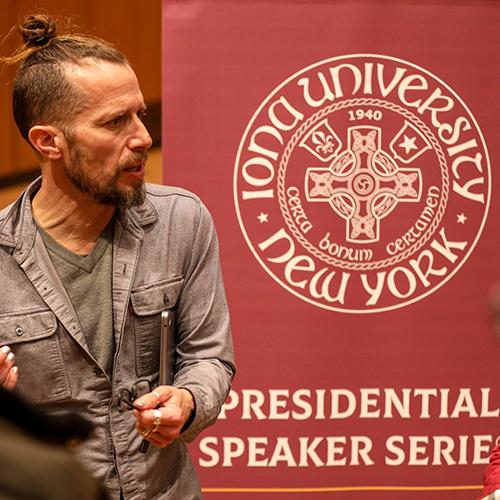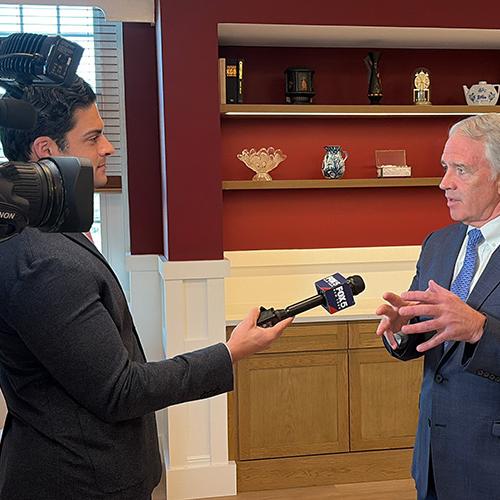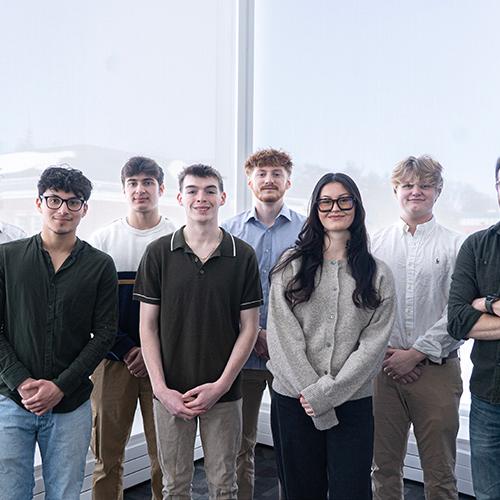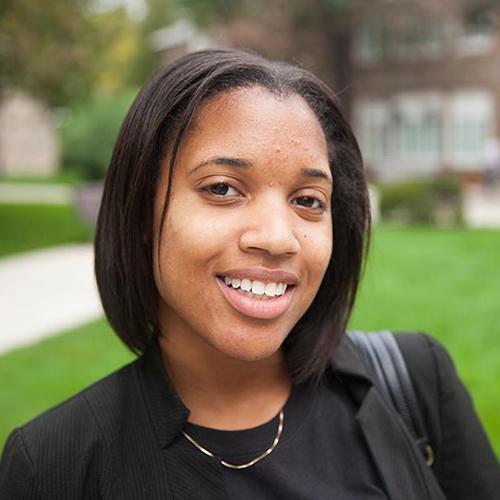How to Become a Special Education Teacher
Why Become a Special Education Teacher?
When you become a special education teacher, you become an advocate for students with disabilities. Your work centers on personalizing students’ education to fit their abilities and giving them the encouragement and support they need to excel in school.
Every student has unique challenges along their academic journey, but some students may have more than others. To aid in their learning experience, these students may receive supplemental instruction from a special education teacher. The additional support special ed teachers provide ensures each child has access to a quality education that empowers them to succeed.
If you are passionate about education and helping students with disabilities improve their academic performance, you are an ideal candidate to become a special education teacher.
What does a Special Education Teacher Do?
A special education teacher is an educator who primarily works with students who have cognitive, emotional, physical or learning disabilities, providing the individualized attention students need to succeed academically.
Unlike core subject teachers, special education teachers—sometimes called exceptional student education (ESE) teachers—are not always classroom teachers. They may teach collaboratively with a general education teacher or work with students in small groups or individually, providing one-on-one instruction and working at an appropriate pace for their students. This aims to improve students’ academic performance and ensure they meet developmental milestones and are on track to advance to the next grade level.
Since they provide supplemental instruction for multiple subjects, teaching special education requires a diverse skill set and expertise in many areas of learning. Teachers should be well-rounded and proficient at adapting lessons and activities to best suit students’ abilities.
To best serve diverse learners, special education teachers are responsible for:
- evaluating and identifying students’ educational needs;
- creating Individualized Education Programs (IEPs) for students;
- monitoring student progress and adjusting their IEPs accordingly;
- modifying lessons and assignments to accommodate a student’s individual abilities;
- incorporating new technology to assist students’ learning journeys.
In addition to student-focused responsibilities, special education teachers also train and oversee faculty and staff who work with students with disabilities, update parents and guardians on student progress and maintain accurate student records.
Education and Certification Requirements to Become a Special Education Teacher
Earn Your Bachelor’s Degree
Minimally, special education teachers must earn a bachelor’s degree to teach. However, depending on the individual’s experience and professional goals, there are numerous academic routes from which to choose.
While some colleges and universities offer bachelor's programs in special education or dual degrees in elementary and special education, prospective special education teachers do not have to earn a degree in special education. If a teacher wants to specialize in working with diverse learners, they can earn their bachelor’s in elementary or secondary education and add an endorsement in special education.
Special education teachers require additional training to prepare them to work with students with a broad range of learning and intellectual disabilities and behavior and emotional disorders. They also learn how to make accurate student assessments, create IEPs and strategize learning accommodations and utilize assistive technologies. This training ensures they provide children with the appropriate curricular adjustments and lesson modifications to support their learning success.
A special education endorsement ensures teachers can support students with disabilities while also readying them for state-required certification.
Learn More: Education (BA, BS)
Earn Your State Teaching Certification
While the certification requirements vary from state to state, typically, prospective teachers must complete the following:
- hold a bachelor’s degree or higher;
- complete a student teaching experience;
- complete a state-registered preparation program;
- pass both a subject-specific examination and a state certification examination;
- pass a background check.
For prospective teachers who want to learn more about state-specific teaching certifications, visit the U.S. Department of Education’s State Contacts directory to find important contact information for your state’s department of education.
The Employment Future for Special Education Teachers
The U.S. Bureau of Labor Statistics (BLS) anticipates the employment rate of special education teachers to increase four percent annually, which is as fast as the national average. This translates to approximately 37,600 new job openings per year. The BLS notes that fluctuations in school enrollment, the need for special education services and special education program funding will drive changes in employment rates.
The median annual wage for special education teachers is $61,820. However, salaries can range from $46,180 to $100,040. This can depend on whether the school is public or private and by state and grade level.
What Skills Are Necessary To Be a Special Education Teacher?
In addition to being well-versed in child development, special education pedagogical strategies and assistive technologies, special ed teachers should be excellent communicators. As a special education teacher, you are responsible for reconfiguring a difficult concept into an idea or process students can grasp. Since each student has a unique communication style and variances in cognitive ability, it often feels like trial and error. However, the ability to present a fundamental concept in multiple ways is an invaluable skill to have when teaching special education.
Possessing strong interpersonal skills is also a necessity. Because they work closely with students and often collaborate with other faculty, special education teachers must embody patience, empathy and flexibility.
The learning process is rarely linear. Sometimes a student may make strides in one area only to regress in another. In these moments, teachers need to maintain a positive and encouraging temperament. When students know their teacher believes in their abilities and strengths, they keep learning and progressing.
Above all, special ed teachers must maintain a positive attitude and remain committed to their students. Teaching special education can be challenging, but it is always worthwhile.
Pursue a Master’s Degree in Special Education
Pursuing graduate-level education can positively impact your career—even if your state does not require special education teachers to hold a master’s degree. With the development of your expertise and technical skills, you can assume higher-level leadership roles and increase your earning potential.
Earn Your MST or MSEd at Iona University
At Iona University, students can pursue either a Master of Science in Teaching (MST) or a Master of Science in Education (MSEd) to jumpstart or continue their training as special education teachers.
Our MST program offers a specialized track in Childhood and Special Education, a favorable program option for ambitious career changers looking to enter the education field and become special ed teachers.
To ensure prospective teachers are well prepared, the curriculum focuses on best teaching practices for students with special needs, creating an inclusive classroom, language and literacy development and assessment strategies. In addition to rigorous coursework, students also complete observation and student teaching practice to prepare them for the classroom. Once completed, students are ready to sit for the New York State Teachers’ Certification Examinations (NYSTCE) and obtain their initial certification.
For teachers who are initially or provisionally certified but wish to pursue advanced education and certification, Iona offers an MSEd program. Our master’s in education program offers numerous specialized tracks, such as:
- Childhood Special Education
- Early Childhood Special Education
- Literacy and Special Education
- Adolescent Special Education
Each MSEd track allows students to mold their graduate degree to fit their professional interests and aspirations by providing comprehensive and highly specialized training. From deepening their knowledge of cognitive and sociocultural dimensions of literacy to special education behavior management, our MSEd degree program offers students a transformative educational experience that furthers their professional development and helps advance their careers.
Begin Teaching Special Education
Because schools are filled with diverse learners, special education teachers are essential to our education system. With their resourcefulness and ability to create inclusive learning environments, special ed teachers ensure all students receive quality education and are empowered to learn.
With a Master of Science in Teaching or a Master of Science in Education from Iona University, students elevate their pedagogical technique and gain hands-on classroom experience, ensuring they excel as special education teachers.
To continue learning about Iona’s MST and MSEd degrees, visit our Graduate Admissions.






